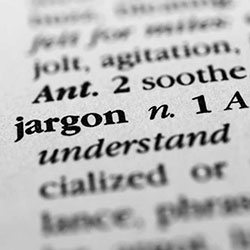 Helping to shine a light on the full range of terms, we continue our series of blogs on procurement jargon explained. This round-up includes terms such as gainsharing, force majeure and incoterms. You can find the previous entries here – parts one, two and three.
Helping to shine a light on the full range of terms, we continue our series of blogs on procurement jargon explained. This round-up includes terms such as gainsharing, force majeure and incoterms. You can find the previous entries here – parts one, two and three.
Firm price
A type of contract where no cost variation can occur after signing. Can prove risky for contractors/suppliers if their costs increase dramatically.
Fixed price
A type of contract where costs can only change after signing via agreed variations (often as a result of inflation) or incentive fees.
FOIA (The Freedom of Information Act)
The Freedom of Information Act 2000 provides public access to information held by public authorities.
Force Majeure
A condition found in contracts to remove liability from contractors/suppliers to deliver agreed works in the case of a unexpected and debilitating event – such as a natural disaster or terrorist attack.
Framework agreement
An arrangement where the terms of purchase are agreed between parties, ready for when purchase is required (see Call-off contract). However no obligation to buy exists.
Gainsharing
In procurement, gainsharing involves outsourcing the task of procurement in order to make savings on a purchase. The procurer’s fee depends on the extent of saving achieved.
GPA (The Government Procurement Agreement)
An international agreement that aims to remove discrimination in governmental procurement.
Incoterms
Short for International Commercial Terms – a series of internationally-recognised standard trade terms. Used to clarify responsibilities in sales contracts relating to transportation and delivery.
Indemnity
An arrangement where one party is liable to reimburse another party for specific losses incurred as a result of contract works.
Ineffectiveness
Under the Remedies Directive, unsuccessful bidders in a tender can claim ineffectiveness if certain mandatory practices have not been followed by the buyer. This can result in a contract being deemed ‘ineffective’ by the court, requiring its cancellation.
Injunction
A court order declaring that a party must do, or refrain from doing, certain acts. An example is the prohibiting of a buyer awarding a contract to a specific supplier.
Innovation partnership
A new concept in EU law which allows the development of a product or service – and the subsequent purchase – to be made within the same procurement process.
Inputs
Factors such as staff resource and equipment that, together, constitute the starting point for a procurement exercise.
Instructions to tenderers
Assistance provided with the tender documents to ensure all tenderers have comprehensive and consistent guidance in preparing and submitting their bids.
Interim payments
Payments made to contractors before the completion of a project. Interim payments are often set at the start of the project, and may be withheld should relevant milestones not have been reached.
Invitation To Participate In Dialogue (ITPD)
A document inviting potential contractors to initial project procurement discussions to better understand contractor capacity, interest and experience. Part of a Competitive Dialogue procedure.
Invitation to Submit Detailed Solutions (ISDS)
A document inviting potential contractors to submit full details of their proposed solutions. The evaluation of these solutions can lead to reduction in the number of tenderers remaining in the procurement exercise. Part of a Competitive Dialogue procedure.
Invitation To Submit Final Bids (ISFB/ITSFB)
A document inviting potential contractors still involved in the procurement exercise to table their final bids following the dialogue process. Also known as ‘Invitation to submit final tender’ (ISFT/TSFT). Part of a Competitive Dialogue procedure.
Invitation To Submit Final Tender (ISFT/ITSFT)
See Invitation to Submit Final Bids.
Invitation to Submit Outline Solutions (ISOS)
A document inviting potential contractors to submit initial details of their proposed solution. Even at this stage, proposals may be evaluated and number of remaining tenderers reduced. Part of a Competitive Dialogue procedure.
Invitation To Tender (ITT)
A document inviting contractors to submit proposals based on a specified requirement. Used in a Restricted Procedure.
Invoice
A bill issued by a supplier for payment relevant to works completed or products/services provided.
Invoice item
A specific item on an invoice showing detail.
Invoice payment terms
The terms of payment agreed between the buyer and supplier.
Joint venture
An arrangement between parties where skills and specialisms are shared for achieving an overall goal.
Key Performance Indicator (KPI)
A measurement defined at the outset of a project or activity to determine level of success or impact of performance.
Nextenders aims to make procurement straightforward and accessible, without diminishing its power to drive change and efficiency in organisations.
For more information about our solutions, visit the products section or contact us with to arrange a demo.

